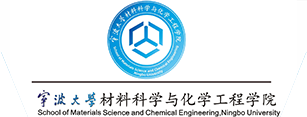Time: 16:00, May 15, 2024
Venue: Room 225, No.1 Laboratory Building, North District, School of Materials and Chemistry
Reporter: Prof. Jin Guoxin
Abstract:
The construction of new inorganic and organometallic macrocycles and cages with interesting structural features and technologically useful functions have been topics of intense study with considerable potential.1 One of the chief motivating factors to growth in this field is the development of new, functional and tunable donor building blocks that can bridge transition metals. Ideal building blocks should be easily accessible, exhibit high affinities toward transition metals, and possess facial coordination sites can undergo exchange reactions with various ligands. Half-sandwich transition metal complexes (Cp*M, Cp* = 5-C5Me5) are useful model compounds in which one hemisphere of the coordination shell is blocked by the voluminous Cp* rings. In the protected space below the Cp* ligands, various bidentate or tridentate ligands can be accommodated.
Motivated by interest in supramolecular chemistry with organometallic half-sandwich complexes, we have initiated a new approach for preparing organometallic macrocycles via C-H and B-H activations with Terephthalate and dicarboxylate carborane.2 We report herein an efficient method for synthesizing molecular macrocycles of half-sandwich iridium and rhodium complexes via C-H and B-H activation directed muticomponent self-assembly under mild condition.



